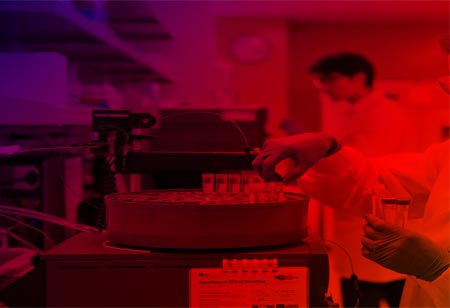Thank you for Subscribing to Healthcare Business Review Weekly Brief
Be first to read the latest tech news, Industry Leader's Insights, and CIO interviews of medium and large enterprises exclusively from Healthcare Business Review
Role Of Technology in Transforming The Future of the Beauty Industry
Every industry has embraced technology in its operations and can see the enormous potential it has over the past few years, from health care to sports to retail beauty brands.

By
Healthcare Business Review | Friday, February 10, 2023
Stay ahead of the industry with exclusive feature stories on the top companies, expert insights and the latest news delivered straight to your inbox. Subscribe today.
The beauty industry, like any other industry, is not untouched by today's technological advancements. The world is marching towards a digitalized future, and so is the beauty industry parallelly moving forward, if not, but more robust than ever.
FREMONT, CA: Every industry has embraced technology in its operations and can see the enormous potential it has over the past few years, from health care to sports to retail beauty brands. The development of technology has completely changed how individuals think about buying and using items. Beauty brands are likewise no exception to this, and they are taking advantage of every chance to use technology to give their customers an overall better experience. Artificial intelligence, augmented reality, and virtual reality are all being used by beauty firms in the rapidly expanding beauty market. Keeping up with consumer preferences and demands requires firms to incorporate high-tech into their products.
To purchase cosmetics, people are reluctant to leave their cosy homes. They want to take advantage of it and buy it online. Online purchases have limited their ability to test out different foundation and lipstick colours and other goods, whereas physical stores allowed them to do so. However, marketers are utilising technologies like virtual try-ons so that consumers may test out different lipstick shades, mascara effects, and other features. It has undoubtedly made it simpler for customers to purchase goods. Besides saving time, they also create a store-like environment in the convenience of one's home.
Beauty companies are creating a range of IOT-based smart goods that will enable them to get information directly from consumers. They can examine the customers' skin and hair using this data. Customers may now quickly analyse their skin and hair thanks to digitization, eliminating the need for instant expert consultation. Additionally, this technology aids consumers in making informed purchases. Even more, it has improved the effectiveness of the product.
Beauty companies take consumer preferences into account when creating various high-tech products, and as a result. Customers may now see their skin up close with AR. With the use of this technology, wrinkles, blemishes, dark spots, and fine lines can all be seen more clearly, and customers can also learn what their skin needs. Beauty applications can identify the ideal product, the type of skincare regimen to follow, and other information with only a short scan of the face. Additionally, one can use this potent tool to predict how the skin will look in five years.
Customers are becoming more picky and seeking more individualised product experiences that fit their lifestyles.






